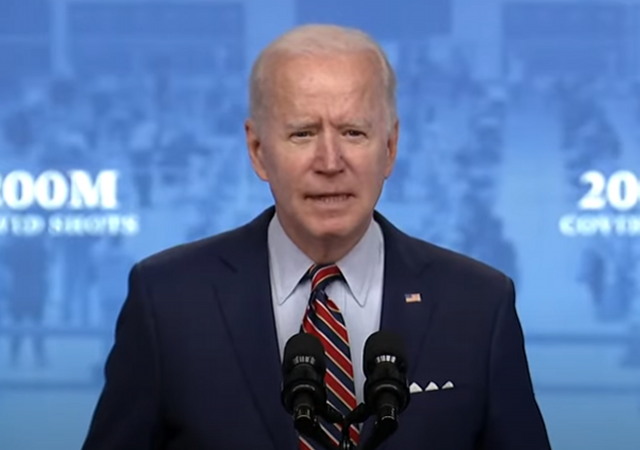Breaching Promises to Miners, Biden Looks Overseas for Electric Vehicle Metals

In October 2020, then-presidential candidate Joe Biden privately told U.S. miners he would support boosting domestic production of metals used to make electric vehicles, solar panels, and other products crucial to his climate plan.
The U.S. Democratic presidential candidate also supports bipartisan efforts to foster a domestic supply chain for lithium, copper, rare earths, nickel and other strategic materials that the United States imports from China and other countries, the sources said.
Just last month, Biden persuaded the nation’s largest coal miners’ union to support the move away from coal and other fossil fuels in exchange for a “true energy transition” that includes thousands of jobs in renewable energy and spending on technology to make coal cleaner.
Cecil Roberts, president of the United Mine Workers of America, said ensuring jobs for displaced miners — including 7,000 coal workers who lost their jobs last year — is crucial to any infrastructure bill taken up by Congress.“I think we need to provide a future for those people, a future for anybody that loses their job because of a transition in this country, regardless if it’s coal, oil, gas or any other industry for that matter,″ Roberts said in an online speech to the National Press Club.“We talk about a ‘just transition’ all the time,″ Roberts added. “I wish people would quit using that. There’s never been a just transition in the history of the United States.″
This month, Biden “forgot” the promises. Biden’s team said it will rely on ally countries to supply the bulk of the metals needed to build electric vehicles and focus on processing them domestically into battery parts. The move is part of a strategy designed to placate the Democratic Party’s eco-activists.
The plans will be a blow to U.S. miners who had hoped Biden would rely primarily on domestically sourced metals, as his campaign had signaled last autumn, to help fulfill his ambitions for a less carbon-intensive economy.Rather than focus on permitting more U.S. mines, Biden’s team is more focused on creating jobs that process minerals domestically into electric vehicle (EV) battery parts, according to the people.Such a plan would help cut U.S. reliance on industry leader China for EV materials while also enticing unions with manufacturing work and, in theory, reduce pandemic-fueled unemployment.
The plan will reportedly rely on metals imported from Canada, Australia, and Brazil. This is not a trivial economic move, either. Biden plans to make the entire federal fleet electric.
That includes 245,000 in various federal agencies… 225,000 in the United States Postal Service… and another 173,000 in the military.That adds up to a grand total of 643,000 cars, trucks, and vans set for an upgrade on the U.S. government’s dime. And after the year we’ve seen for EVs in 2020, this should come as no surprise.
As an extra bonus, electric car manufacture will also be outsourced.
On April 30, General Motors (NYSE: GM) became the first U.S. automaker to announce it would build electric vehicles in Mexico. GM said it would invest $1 billion in its factory in Ramos Arizpe to produce electric cars.As U.S. automakers pivot into the electric, autonomous vehicle era, cross-border operators say Mexico is more than ready to seize the moment.“GM’s announcement is really exciting news for Mexico because it’s one of the very first electrical vehicles that’s going to be made in Mexico,” said Jordan DeWart, managing director at Redwood Mexico based in Laredo, Texas. Redwood Mexico is part of Redwood Logistics, headquartered in Chicago.
These decisions have to leave Americans wondering if decisions from the Oval Office are now also being outsourced.
CLICK HERE FOR FULL VERSION OF THIS STORY